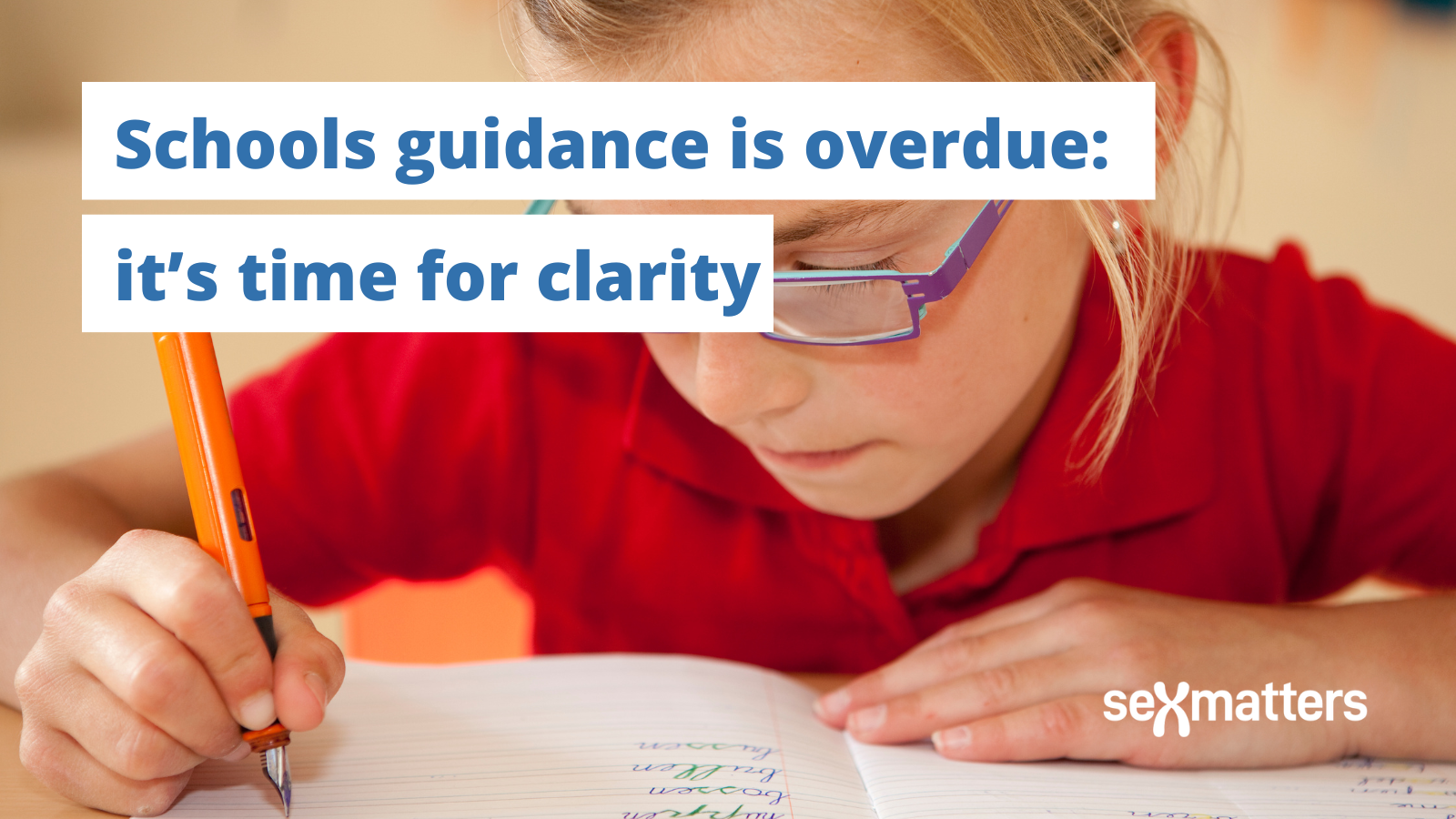Schools guidance: the Education Secretary must act

The end of term is getting near, and Secretary of State for Education Gillian Keegan has still not handed in her homework.
The critical question that the Department for Education appears to be stumped by is whether they should tell schools that they must consider “socially transitioning” some children, in other words calling some boys “girls”, and some girls “boys”.
It is a question that is often presented in innocuous-sounding terms as “Let a child chose their own pronouns”. But this refers to words that other people use. Pronouns are words that stand in for nouns. The pronoun “he” substitutes for the noun “boy”, and the term “male child” and the pronoun “she” substitutes for “girl” and “female child”.
A child (and their parents) who believes it is their right to be called “he” will not take kindly to being referred to as a girl and female. And children who have been told that they should call a child “he” or “she” will rightly take from this that they are expected to believe they are a boy or girl respectively.
As the National Curriculum states:
“The grammar of our first language is learnt naturally and implicitly through interactions with other speakers and from reading.”
Schools form part of a system that is regulated at a national level. In England that system is the responsibility of the Secretary of State for Education.
The Department for Education’s guidance must ensure that schools do not respond to demands by children and parents who want to be referred to as the opposite sex by losing sight of reality and acting unlawfully: failing in their statutory duty to keep and use information on a child’s sex, and to communicate and enforce sex-based rules fairly and clearly. Nor should it allow schools to adopt policies which unlawfully constrain the freedom of belief and speech of others.
“Gender reassignment”
We think that the DfE may have got tangled up in a common misperception about the protected characteristic of “gender reassignment” – that it reflects an obligation on others to pretend a person has changed sex. We have published a new set of Frequently Asked Questions.
The FAQs set out who the protected characteristic of gender reassignment applies to (anyone at any stage of proposing or going through with any part of what they identify as a personal process of transition), and what it means (they shouldn’t be discriminated against, harassed or victimised).
As the legislation and case law show, the protected characteristic is wide:
- Does a person have to be under medical supervision to have the characteristic? No.
- Must they have a gender-recognition certificate or be in the process of applying for one? No.
- Does a person have to have made a firm decision to transition? No.
- Can children have the protected characteristic? Yes.
But its effects are narrow:
- Does having the protected characteristic of gender reassignment mean that a person must be treated as the opposite sex? No.
- Does the Equality Act outlaw “misgendering”? No.
- Is it harassment to “out” a person as transgender? Not necessarily.
- Can employers have policies which require people to refer to transgender people in particular situations in a particular way? Yes, but those policies must be proportionate.
The Department for Education will also be thinking about “proportionality”, which is the principle in human-rights law that the state may only restrict non-absolute rights such as the right to private and family life (Article 8), or the right to manifest a belief (Article 9), if the restriction is (1) allowed by law (2) justified and (3) proportionate. “Proportionality” is often interpreted as meaning that blanket rules can not be set or enforced. But it is a red herring here.
Schools are already required by law to record each child’s sex in their records and consider each child’s sex in safeguarding. This is a blanket rule. It follows from this that they should not misrepresent that information or compel others to misrepresent it, and it is not possible to keep it private within a school community. Not lying about a pupil’s sex or forcing others to lie about it is not an incursion into that child’s privacy which needs to be justified.
Would it be lawful for a school to have a policy that forbids, punishes or denigrates pupils who use clear words about the sex of other people (such as pronouns, but also boy/girl, male/female and so on) or that require pupils to refer to some classmates as if they were the opposite sex?
We think it would not, for four reasons:
- To do so constrains the freedom of speech of pupils in a way that is unjustified and discriminates against them on the basis of belief.
- It is inconsistent with schools’ safeguarding duty of care, and with their record-keeping responsibilities, for staff to misrepresent the sex of pupils in their records or in introducing them to their peers.
- In order to explain and enforce sex-based rules designed to keep children safe (such as who is allowed in which showers, toilets, dormitories or sports teams), schools must be able to use clear and unequivocal language.
- It is not reasonable to expect that a child at school (or transferring between schools), can avoid having their sex known and and clearly acknowledged.
The Department for Education must not pass the buck down to individual schools to consider on a “case-by-case” basis whether to give into pressure to lie about a child’s sex, or to force other children and teachers to lie or dissemble. It should simply tell them that they cannot do it.
And if there needs to be a judicial review to defend this then it should be at the level of the DfE and the whole system.
